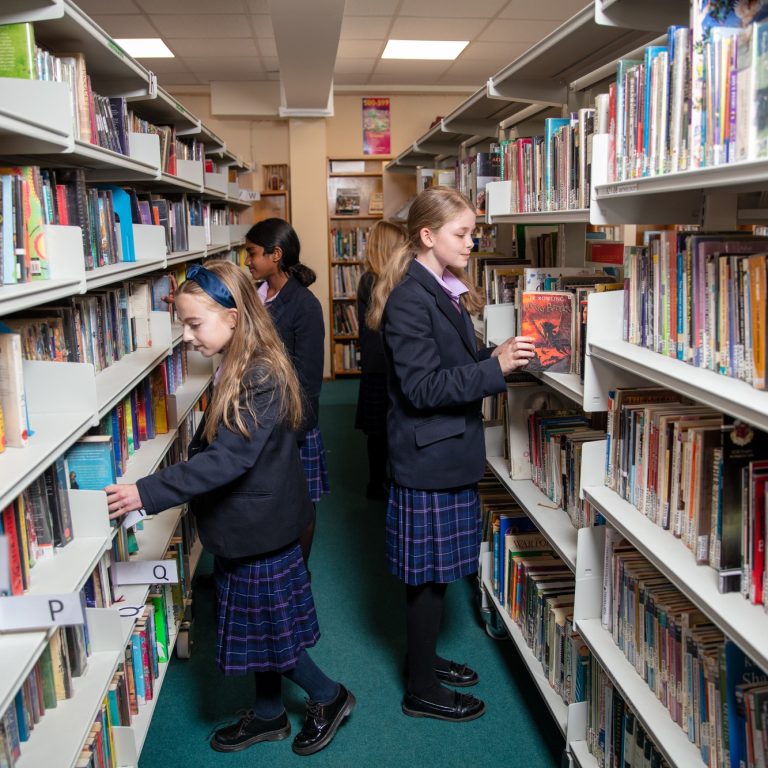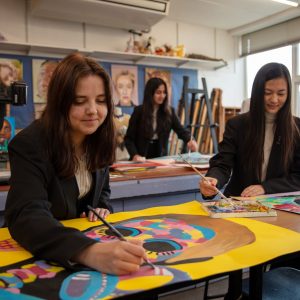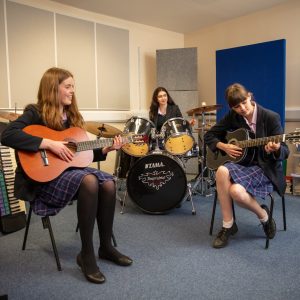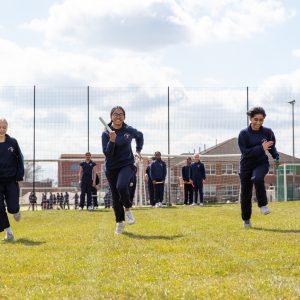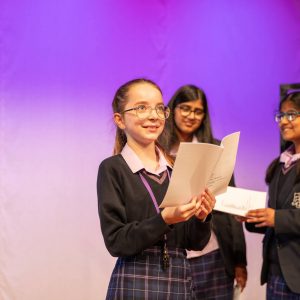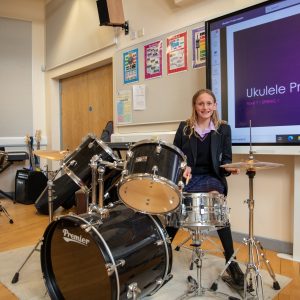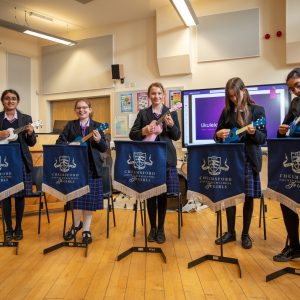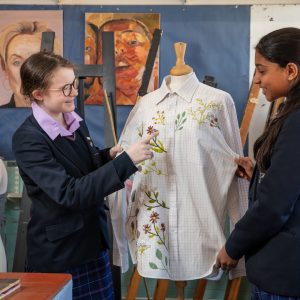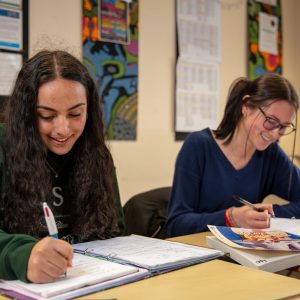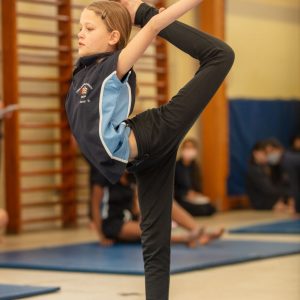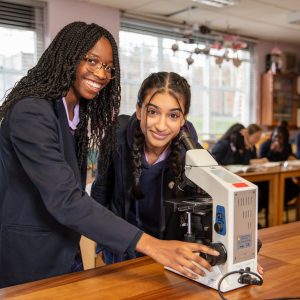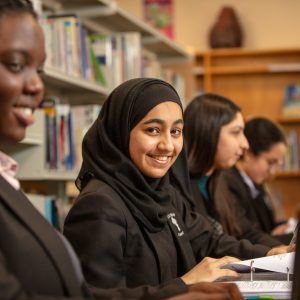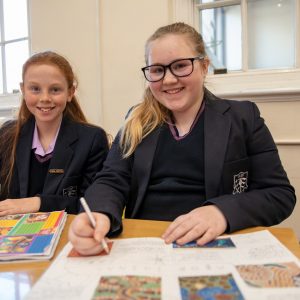“The school has a suitably challenging curriculum for the selective ability of the pupils. This includes studying the range of subjects that make up the English Baccalaureate. The breadth of the offer for scientific, technological and mathematical study (STEM) is impressive. This is not to the detriment of the creative subjects: many pupils opt to study the arts. Pupils and students in the sixth form achieve the highest outcomes in their national examinations. This is due to the high quality curriculum and expert delivery. The curriculum is carefully designed to extend and deepen pupils’ thinking. There is an emphasis upon helping pupils make connections in their learning. Curriculum planning is meticulous in addressing any gaps in pupils’ knowledge. This is so pupils move on to complex material with secure understanding.” (Ofsted Inspection Report, January 2024)
“The school has a curriculum challenge model which provides demanding and stimulating experiences for students. Habitual challenge is central to teaching and learning. The seven elements of the model are: scheduled; extension; enrichment; overarching; excellence; ancillary and innovation. The school has a shared language and understanding of all that curriculum embodies. In the broadest sense learners are expected to become: articulate; creative; enquiring; knowledgeable; principled; reflective and resilient.” (NACE Challenge Award Assessment Report, September 2024)
“It is not enough to have a good mind; the main thing is to use it well.” Rene Descartes
The vital concept which animates our curriculum is ambition…
Ambition for our students:
- to ignite a passion for learning
- to learn a progressively challenging body of knowledge in every subject each year
- to understand a range of increasingly sophisticated key concepts in every subject each year
- to appreciate content and conceptual links between subjects
- to be inspired to pursue their curiosity through extra-curricular and enrichment opportunities
Ambition for our staff:
- to be active participants in the design and review of schemes of work
- to be reflective practitioners as they teach the curriculum
- to be critical analysts as they monitor assessments and scrutinise outcomes
- to both support and be supported in their ambitious curriculum practice
Ambition for our school:
- to honour the legacy of those who founded our school in 1907, providing a home for girls’ academic education
- to inspire our current community to achieve their individual and collective best
- to progress our educational inheritance through curriculum innovation
- to create a new chapter of curriculum excellence for future generations
Our curriculum is distinguished by…
Breadth…
- appropriate coverage for our able students across the family of subjects
- STEM (biology, chemistry, physics, mathematics, computer science)
- literature and languages (English, modern and classical languages)
- Humanities (geography, history, RS)
- the Arts (art, drama, music)
- Social Sciences (economics, government & politics, psychology)
- Health (PE, PSHE)
Balance…
- appropriate apportioning of curriculum time
- access to all subjects for each student
- progression through KS3 with Philosophy for Children (P4C) in Yr7, then Latin in Yr8, and sciences in Yr7, Biology, Chemistry and Physics in Yrs 8-9
Challenge…
- CCHS Challenge Model
- Scheduled: habitual challenge
- Extension: amplified challenge
- Enrichment: deep challenge
- Overarching: cohesive challenge
- Excellence: examination challenge
- Ancillary: complementary challenge
- Innovation: novel challenge
- number and range of subjects at KS3 (x14 Yr7; x16 Yrs8-9;)
- CCHS KS3 Curriculum (Content, Concepts, Connections and Competencies)
- GCSE options structure to realise the EBacc (core, humanities, languages, additional and open choices)
- A level options structure to realise access to competitive courses at selective universities
Professional curriculum engagement
- Membership of Subject Associations and participation in subject-related social media for
- Engaged locally with:
- Mid Essex Secondary Heads (MESH)
- Association Secondary Headteachers in Essex (ASHE)
- Billericay Teaching School Alliance (BTSA)
- Engaged nationally with:
- Grammar School Headteachers Association (GSHA)
- Successful Selective Girls’ Schools (SSGS)
- Prince’s Teaching Institute (PTI)
- National Association for Able Children in Education (NACE)
- Engaged internationally with:
- Advancing Girls’ projects
- International Coalition of Girls’ Schools (ICGS)

